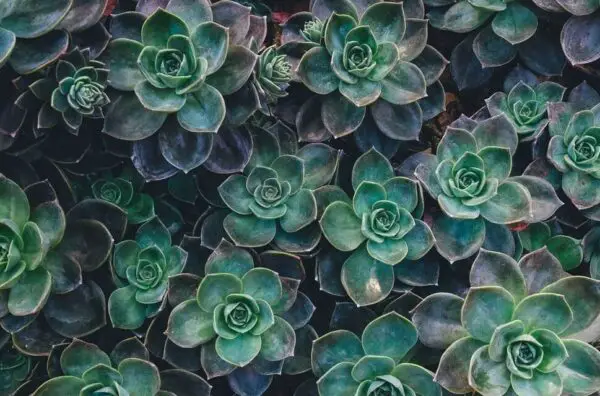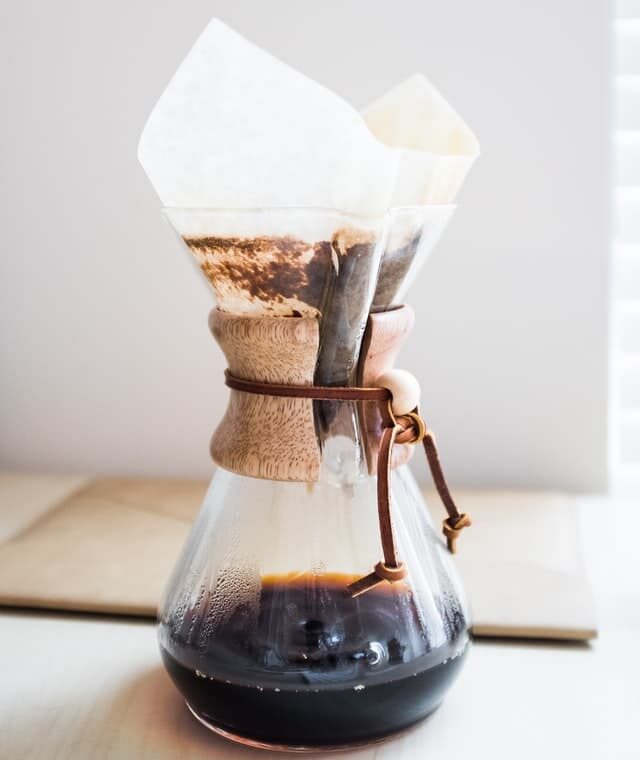Coffee grounds are the excess debris left behind after you prepare your coffee. They are the end, side product obtained as a result of brewing coffee. The used coffee grounds are mostly thrown away yet they are rich in mineral and nutritional resources.
Is coffee ground good for succulents? Coffee grounds are rich in Nitrogen, Potassium, and Magnesium hence they can be used as compost as well as a fertilizer for enhancing the fertility of the garden soil to promote better succulent growth.
Table of Contents
Can you put coffee grounds in the garden?
Garden soil generally lack the essential mix of nutrients and minerals needed for supporting the proper growth of succulents. Along with this, as these plants grow up they use up the already existing nutrient reserve of the soil.
- Coffee grounds act as a wonderful free yet effective source of fertilizer that can enhance the enrichment of the soil.
- They are stuffed with a mix of minerals essential for plant growth. So putting coffee grounds in the garden is an awesome way of fertilizing the soil (Source).
Benefits of using coffee grounds for Better Succulent Growth:
Boosts Soil Fertility:
- Coffee grounds slowly release nitrogen when used as a mulch in the garden soil. Growing succulents depend heavily on the soil for potassium, magnesium, and nitrogen reserves. The depletion of these minerals will stunt their growth and make them grow pale.
Enhances the Acidity of the Soil:
- They also help in making the soil a little bit acidic. Succulents love slightly acidic soil in the pH range of 5.8 to 7.
- Ideally, you should only water the succulents with distilled water or stored rainwater which is not alkaline in nature. In case you use tap water, the soil pH is bound to be slightly alkaline. You can always use a pH meter for testing the pH of your soil from time to time
Enhances the Microflora of the Soil:
- Boosting the soil with nutrients helps in attracting worms and beneficial microbes.
- Microbes living in the soil ecosystem love coffee grounds and slowly break them into finer rich components which further helps in maintaining soil fertility.
Reduces soil contamination:
- Coffee grounds help in absorbing the heavy metals that accumulate in the soil and harms the plant growth.
In fact, many top businesses tied with coffee brewing has certain dedicated programs that promote not wasting coffee grounds and using them for gardening. E.g.: Starbucks runs a program called “Grounds for your Garden” project.
Are coffee grounds good for succulents & other plants?
Brewed Coffee grounds are incredible sources of green compost for the succulents & plants growing in the garden. They are rich in nitrogen and other components of potassium, magnesium, etc. which gets evenly broken down by the soil microbes and this enhances the soil fertility promoting better growth for the plants.
- However, use other varieties of fertilizer as well that have sufficient amounts of other nutrients especially phosphorous as that promotes better flowering.
Always use brewed versions of coffee grounds as the unbrewed ones have tremendous caffeine content in them which are extremely acidic and this may do harm than good.
Brewed ones are already diluted with water and processed so their acidity gets reduced a lot.
Precautions for Using Coffee Grounds
- Make sure you have not used any nitrogen-rich fertilizer before mixing coffee grounds in the garden soil. Excess amounts of nitrogen in the soil can hamper plant growth.
- Also coffee grounds are slightly acidic in nature so try to use them specifically for plants that like to grow in acid soils.
- Dilute the brewer coffee grounds even further with a 60:40 ratio of water and coffee grounds…
Also Read:
How to create compost & use coffee grounds for succulents
- Add coffee grounds with organic wastes along with kitchen wastes. Add yard trimmings, eggshells, leaves, and vegetable wastes as well. This will provide the soil with nitrogen as well as carbon content. Avoid using meat or fish wastes along with dairy items.
- Keep it damp and dry it out from time to time until and unless all of the materials have converted into complete dirt and has an extremely strong aroma.
- Slowly add them around the top layer of the soil around the plant and the trees.
Alternatively, you can even use the coffee grounds directly into the soil as a fertilizer homemade and free.
Dilute about 1 to 2 cups of brewed coffee ground in 5 to 7 gallons of water and leave it undisturbed for a day. Slowly spray it around the garden soil.
Also Read: 7 Beautiful Succulents for Balcony You”ll Wish You”d Known Sooner
Should You use coffee grounds for Indoor Potted Succulents?
Indoor plants will be growing in the pots hence the soil reserve will be limited.
Coffee grounds are quite acidic in nature even the ones that are brewed and diluted further remain to some extent acidic. They also contain a lot of caffeine and high nitrogen amounts that are not needed by plants growing in small areas. Hence balanced slow-release fertilizers in diluted forms are used for most potted plants.
- Also, pot soil does not have that many microbes present that can break down those coffee grounds effectively, as a result, they can lead to blockage of water drainage and in turn harm the plant.
So Never Use coffee grounds directly for potted plants kept inside. Limit their usage as fertilizer or compost to garden soil only.
Directly applying coffee grounds to the potted succulents can:
- Decrease the Drainage efficiency of the soil
- Increase Moisture Retention
- Lead to Fungal Growth & hence affect the health of the succulent
How to Use Coffee Grounds For Potted succulents without Harming Them?
Compost coffee grounds first before using them on potted succulents
- In case you are repotting the plant or thinking about growing a new succulent, you can add the coffee grounds in the compost pile and wait till everything is ready.
- Succulents love drainage friendly soil however they also need a suitable amount of nutrient-rich organic matter in the soil to survive.
- Word of caution never use too much of the compost for prepping succulent soil as it retains water. Just add 1/2 an inch of compost to the topsoil and the succulent will be good to go.
Use Coffee grounds as liquid fertilizers
- Keep the coffee grounds soaked in a bowl of water for about 2 weeks. Stir the mixture after every few days.
- Within 2 weeks the nutrients from the coffee grounds will get mixed into the water. The water will be a rich source of potassium, magnesium, and nitrogen.
- Along with this, the water will also attract the growth of beneficial bacteria owing to the nutrient content.
- You can separate the coffee grounds and sprinkle this water as a natural fertilizer to the soil.
- Test out by adding this homemade fertilizer a few times in the growing season and see how the succulent reacts to it.
Also Read: 5 Gorgeous Succulents that looks like Corals
FAQ
Which plants like used coffee grounds?
Plants that love to thrive in a little bit of acidic or neutral pH like having brewed coffee grounds in the soil.
List of plants that like coffee ground include:
- All types of Ferns
- Succulents
- Begonia
- Japanese iris
- Azaleas
- Camellias
- Berries
- Roses
- Hydrangeas
- Daffodils
- Magnolia
Which plants do not like coffee grounds?
Plants that grow in alkaline soil do not like coffee grounds as it is extremely acidic in nature even in brewed or diluted form. Some of them include Asparagus, Legumes, Garlic, kiwi, etc
Conclusion
Coffee grounds are awesome substitutes for synthetic chemical fertilizers. They are completely natural, cheap, and boosts soil health enormously. They are regarded as more useful for garden plants rather than indoor potted plants.
Also read:
Are you going to add coffee grounds to your soil? Let me know in the comment section!


